#Traffic
Federal Appeals Court Embraces DC Speed Cameras
The US Court of Appeals for the DC Circuit on Tuesday rejected a class action lawsuit filed against the speed camera program in the nation’s capital. Motorists Henry Dixon and Cuong Thanh Phung argued the city violated their constitutional guarantee to equal protection of law by treating drivers pulled over for speeding more harshly than drivers mailed photo tickets for speeding.
The US District Court for the District of Columbia ruled against Nixon and Phung, finding no violation of the Fourteenth Amendment (through the Fifth Amendment) because drivers apprehended for speeding by police officers are not similarly situated to motorists photographed and accused of speeding by a photo radar device. The district judge reasoned that the camera is unable to confirm that the owner was the driver, so the greater punishment should not be imposed. The three-judge appellate panel agreed with the lower court’s conclusion, but for a different reason. The speed camera law can stand under the “rational basis test” used to insulate government actions from constitutional challenge.
Federal Appeals Court Backs Traffic Stop Patdown
As long as a police officer cites his own safety as the reason, he may frisk any motorist during a traffic stop and remove objects from his pockets, according to a ruling handed down Tuesday by the US Court of Appeals for the Tenth Circuit. A three-judge panel evaluated whether Officer Joe Moreno was following the law when he searched driver Ivan Rochin after he was pulled over in Albuquerque, New Mexico for driving with an expired registration.
“No one likes being pulled over for a traffic violation,” Judge Neil M. Gorsuch wrote for the court. “Still, for most drivers the experience usually proves no more than an unwelcome (if often self-induced) detour from the daily routine. But not every traffic stop is so innocuous. Sometimes what begins innocently enough turns violent, often rapidly and unexpectedly. Every year, thousands of law enforcement officers are assaulted — and many are killed — in what seem at first to be routine stops for relatively minor traffic infractions.”
Colorado: Auditor Blasts Denver Photo Ticketing Program
After performing a thorough performance audit, Denver, Colorado’s city auditor is no longer convinced of the value of red light cameras and speed cameras. The Denver Police Department (DPD) deputized the Dallas-based firm Affiliated Computer Services (ACS, a division of Xerox) to issue red light tickets at four intersections and speeding tickets throughout the city with five roaming vans. The program has little more to show for itself than a profitable bottom line.
“Unfortunately, DPD has not demonstrated that the photo radar program has a positive impact on public safety,” City Auditor Dennis J. Gallagher wrote. “Because these programs were sold as public safety enhancements but are widely viewed as a cash grab, it undermines public trust to maintain photo enforcement programs that are profitable but whose safety impact has not been conclusively shown. If this situation persists, then the photo enforcement programs should be shut down.”
Florida Appeals Court Sides With Red Light Cameras
The Florida legislature’s authorization of red light cameras last year was superfluous, a divided state Court of Appeals panel ruled yesterday. The majority sided with the city of Aventura in overturning a Miami-Dade County Circuit Court decision from last year that found Aventura had jumped the gun by giving American Traffic Solutions (ATS) a green light to mail out automated tickets without waiting for the state’s permission.
Florida law does not allow a city to adopt an ordinance in conflict with a state statute. The majority argued a provision requiring traffic officers only to issue traffic tickets for violations they personally observed is not in conflict because the same officers can “observe” the infraction on video under the Aventura photo ticketing ordinance.
Maryland Court: No Redress When City Violates Speed Camera Law
Maryland state law prohibits municipalities from paying contractors to operate speed camera and red light cameras on a per-ticket basis. In an October 27 ruling, the Court of Special Appeals found that localities are free to ignore this legal requirement.
A group of motorists in 2008 filed a class action lawsuit against Montgomery County, the cities of Rockville and Gaithersburg, and Chevy Chase Village because each paid Affiliated Computer Services (ACS) $16.25 for each ticket the company issued, in violation of the statute.
“If a contractor operates a speed monitoring system on behalf of Montgomery County, the contractor’s fee may not be contingent on the number of citations issued or paid,” state code section 21-809 states.
Ten Years Of Traffic Fatalities In One Interactive Map
Some 369,629 Americans lost their lives on the road in the period from 2001 through 2009. Now ITO World has mapped every single one of them onto an interactive map that promises hours of morbid fun. Where do accidents happen? Who do they happen to? What kind of vehicles tend to be involved? Are there high-fatality areas near you? The answers to these questions and more await in this one-of-a-kind map.
Georgia: Feds Deny Relief to HOT Lane Gridlock
The Federal Highway Administration this week turned down the state of Georgia’s request to relax the occupancy requirement on the new Interstate 85 high occupancy toll lanes (HOT lanes) in Gwinett County. In October, the state imposed the toll on the existing carpool lane, raising the number of occupants qualifying for a free ride from two to three.
The initial $5.50 on top of the occupancy change proved too much and traffic ground to a halt in the general purpose lanes while the toll lanes remained relatively unused. In a panic, Governor Nathan Deal (R) moved on October 6 to slash the toll and request a waiver from the Federal Highway Administration to drop the occupancy requirement back down to two.
Maryland: Innocence Not a Defense to Speed Camera Citation
Prince George’s County, Maryland judges are tired of complaints that photo enforcement citations are inaccurate or otherwise invalid. To speed proceedings on “speed camera day” when automated citation cases are heard, at least one judge is cautioning motorists not to bother attempting to prove their innocence, regardless of the merit of their argument.
“This is a speed camera violation session,” District Judge Jean S. Baron said on November 9. “The only defense the court is going to accept is if you were not the driver of the vehicle and you have the name and the address of the person who was driving and you present that to the court under oath, I will accept that as a defense. Please don’t tell me that you know you couldn’t have been going that fast or there’s something wrong with the equipment.”
Louisiana Court Affirms Citizen Right to Make DUI Arrests
Private citizens can arrest other motorists suspected of driving under the influence of alcohol (DUI), the Louisiana Court of Appeals ruled Tuesday. A three-judge panel considered the case of Tracy L. Common who was stopped in Westwego by Gretna Police Detective Brian Rico at 9pm on December 31, 2006. Rico was off-duty and outside his jurisdiction.
That night, Rico saw Common’s Chevy S-10 pickup truck swerving on the road and felt the driver was seriously impaired. He activated the lights on his unmarked car and conducted a stop without waiting for the local police to arrive. When Common hopped out of the car, Rico conducted a pat-down search which turned up 50 pills and $1100 in cash. A later search of his car by local police uncovered $2000 and some marijuana.
Though Rico was a police officer, the court assumed he was acting as an ordinary citizen, citing the 2008 appellate case Louisiana v. Lavergne which upheld a DUI traffic stop performed by a volunteer firefighter from Texas.
Photo Ticketing Investors Content With Declining US Performance
Investors in Redflex Traffic Systems were resigned toward the photo enforcement vendor’s declining US performance at Wednesday’s annual shareholder meeting in Melbourne, Australia. The company has lost significant US market share and profit as more cities reject automated ticketing machines. Nonetheless, large executive compensation packages were approved without the dissent found in past meetings.
Shareholders signed off on a $324,926 salary for chief executive Graham Davie, plus $194,956 in stock for a total of $519,882 — a raise of 3.6 percent. Board member Karen Finley’s salary increased 3 percent to $318,270 plus $196,060 in stock for a total of $514,330. Finley is in charge of US operations which saw a drop in profit from the first and second half of the year of 7.4 percent.
Redflex has also lost its position as the dominant player in the automated ticketing market to American Traffic Solutions which has used funds invested by Goldman Sachs to buy out smaller competitors and take on their municipal contracts. ATS now boasts the greatest number of cameras deployed.
California Court Criminalizes Using Cell Phone While Stopped
In a decision with wide-ranging implications for people who might check their email on an iPhone while stopped at a traffic light, the California Court of Appeal ruled Monday that it was a crime to use a phone at any time behind the wheel of a stationary or moving vehicle.
Three days after Christmas in 2009, a motorcycle cop in Richmond pulled up to a red light and noticed Carl Nelson, driver of the stopped car next to him, appeared to be making a cell phone call. Nelson put down the phone as soon as he saw the officer. Nelson said he was just checking his email while waiting for the light to turn green. The Golden State banned the use of handheld cell phones while driving in July 2008.
“A person shall not drive a motor vehicle while using a wireless telephone unless that telephone is specifically designed and configured to allow hands-free listening and talking, and is used in that manner while driving,” the law states.
Washington: Anti-Camera Initiative Sponsors Seek Rehearing in Court
Although the city council in Redmond, Washington has decided to cancel its red light camera contract, the city continues to block the effort to let voters have a say in the decision. In court papers filed Monday, local activists cited election results in the cities of Bellingham, Longview and Monroe to convince King County Judge Laura C. Inveen to reconsider her October 11 ruling that it would be a “useless act” to put an advisory measure on the ballot.
“Under the local initiative process, the city clerk had a clear duty to transmit the petition to the county auditor,” Judge Inveen ruled. “That mandamus will not lie to compel the useless act of transmitting the initiative to the county auditor where the initiative is invalid according to the Court of Appeals’ recent decision, American Traffic Solutions v. Bellingham.”
Drivelapse USA: The Great American Road Trip In Five Minutes, Fifteen Seconds
Alaska Appeals Court Upholds Burnouts
Drivers cannot be pulled over if they peel out from an intersection with a bit of tire squeal, Alaska’s second-highest court ruled Thursday. In countries like Australia, a similar chirp of the tires could lead to the impounding of the vehicle under “anti-hoon” laws that generate millions in revenue. A three-judge panel in The Last Frontier was more forgiving when considering the fate of Vernon Burnett who was pulled over after midnight on September 20, 2009.
Alaska State Trooper Lucas Altepeter saw Burnett’s truck stop, then spin its tires one-third of the way through the intersection while turning left in the city of Bethel. Burnett made no driving errors, but Trooper Altepeter decided to stop him anyway, as he had “never seen somebody accidentally lose traction and spin their tires as fast and as far as this particular vehicle did.” The trooper believed he could write a citation for the tire spinning alone. A district court judge agreed, saying the the spinning was sufficient proof of negligent driving. The appellate court sided with Burnett.
Federal Appeals Court Upholds Forced Home Entry Over DUI
The US Supreme Court ruled 27 years ago that police could not forcibly enter someone’s home over suspected drunk driving. The Fourth District US Court of Appeals in an unpublished decision is looking to change the precedent. A three-judge appellate panel considered the case of Alan J. Cilman who had filed a false arrest lawsuit after Officer M.A. Reeves busted down his door, without a warrant, on October 3, 2004.



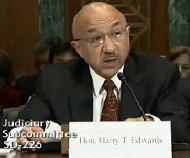

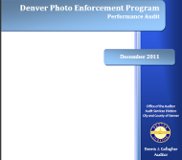

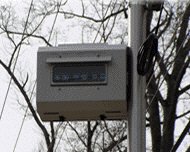
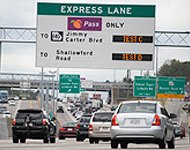
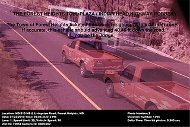
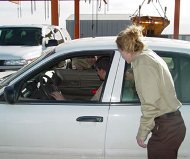



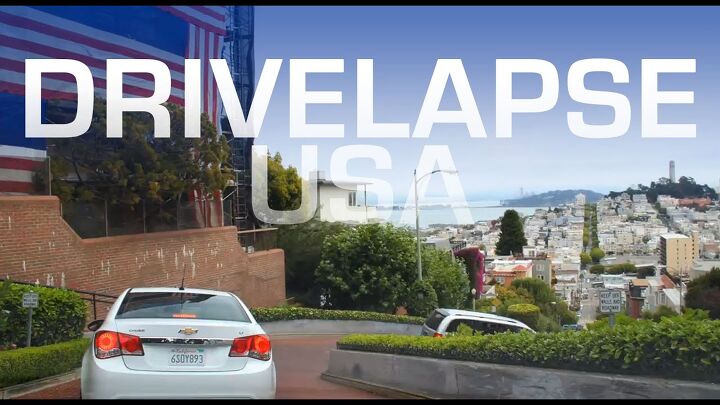














Recent Comments